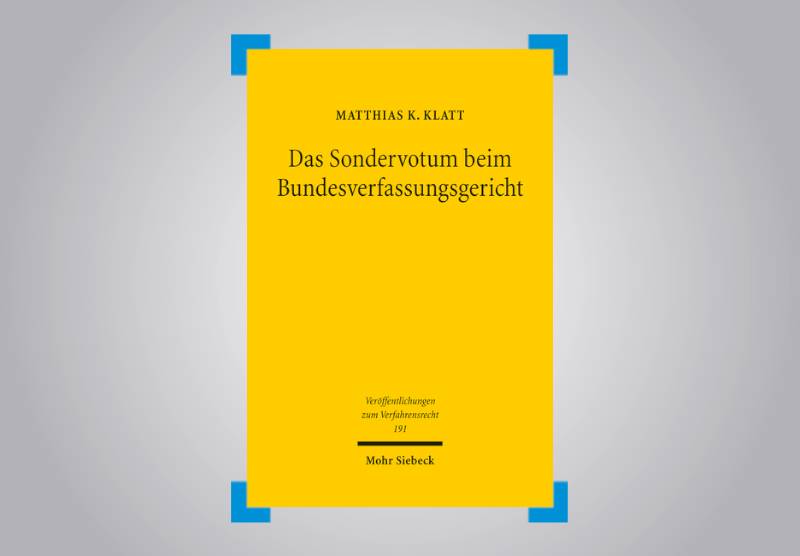The doctoral thesis of our former colleague Dr Matthias K. Klatt was published by Mohr Siebek in April 2023.
Content
Judges have been able to issue dissenting opinions on Senate decisions of the Federal Constitutional Court since December 1970. After a very long political and academic discussion about the introduction of this instrument, dating back to 1877, the special vote has now been established for over 50 years. Matthias K. Klatt offers an empirical analysis of the court's practice and determines the functions of the special vote.
To the Publication (in German)
About the author
Matthias K. Klatt supported the research and teaching of
Prof. Dr. Wolfgang Schulz, with whom he worked from November 2018 to 2021 as a research assistant at the Chair of Media Law and Public Law, including its theoretical foundations, at the University of Hamburg. He took over the coordination function between the university and the HBI. Afterwards, he worked at the Institute until the end of May 2022. He is currently a legal trainee at the Hanseatic Higher Regional Court.
Klatt, M. K. (2023): Das Sondervotum beim Bundesverfassungsgericht [The Special Vote at the Federal Constitutional Court]. Mohr Siebek. DOI 10.1628/978-3-16-161120-9
Hamburg, 4 May 2023


